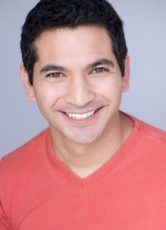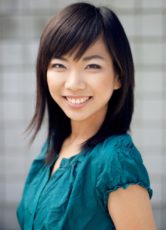
What is your character’s function in the role and the scene? According to Caryn West, the answer to this question makes all the difference in giving a great performance.
West is an acclaimed acting coach and teacher who is known for her expertise in script analysis and character development. Based in Los Angeles, West has worked with numerous actors to help develop their craft using various techniques from Sanford Meisner, Lee Strasberg, Stella Adler and Tom Todoroff. In addition to conducting workshops, classes and private coaching sessions via Caryn’s Space for Actors, West is a working actress herself, and this firsthand experience informs her teaching methods. The Stanford graduate says her auditioning classes are “based on every mistake [she] made during the first ten years of [her] career.” Her students include Strike Back actor Dan MacPherson, Alysia Reiner from Orange Is the New Black, Big Little Lies actor James Tupper and Crazy Rich Asians lead Jimmy O. Yang.
A Character’s Function
West explores the topic of a character’s function within the role or a scene during interviews with Acting Is Everything and SAG-AFTRA. Something she finds missing from actors’ training is an emphasis on storytelling. “As actors, a lot of times we create characters; we create moments. What we forget is our function in the story,” she says.
“I do think the paradigm of 20th-century Stanislavski-based actor training did not take into effect storytelling in terms of teaching us dramaturgical skills as actors—what the director needs, or what the writer needs to make the scene work,” West continues. “We’re always thinking about our characters and intention as opposed to what is the thing that happens in the scene that moves the story forward, that the director needs and the writer needs, the [executive producer] needs. And when we start thinking a little more that way, we make better-informed choices in terms of storytelling. And I think that is something we don’t start with enough in terms of breaking down the script.”
West cautions actors about mainly focusing on great actor moments. “Sometimes you might just act the crap out of a scene thinking, ‘Gee, I was good in there!’ Right? But you were totally inappropriate for what the story needed. And it’s tragic to have an actor work that hard and then miss the storytelling boat in terms of what’s your function.”
Examples of Missing the Storytelling Boat
West describes what it looks like when performers overlook their character’s function in the storyline. “A lot of times in a sitcom, you’re the guest—you’re the [stock character] to set up the star who gets the laugh. They get the payoff; you have to set them up in a lot of instances. Or you’re the comic relief in an otherwise serious, forensic procedural drama, and you get to have a little comic relief,” she notes. “So, knowing your function both in the story and within the scene, and then knowing the event of the scene that has to happen. What moves the story forward? Good directors know this.”
Wanting to Play the Hero
In her classes, West gives out a nurse scene from a popular crime series. “What happens a lot in guest spots is people try to come in and be the hero of the scene, like they know everything,” she notices. “I always get these heroic nurses who seem to know that someone came into the patient’s room when the nurse wasn’t there,” as if the nurse is actively trying to solve a crime when in reality, he or she would be focused on the practical task of tending to patients. It’s the lead actors who get to be the hero by winning the battle, making a great point in cross-examination, solving the crime and getting to tell the clever joke.
The tendency to want to be the hero can show up in the audition room. “A lot of us are so invested in being the hero of our audition,” West asserts. “You know, we get confused. We want to show them how much we know, how knowing we are, how perceptive we are. Sometimes we’re supposed to be the unknowing one—the dumb one, the clueless one. And the series regulars are almost always the heroes, or the antagonists that we grow to love, the anti-hero we grow to love. So, I think in terms of guest spots and co-stars, actors make big mistakes on the way up trying to be heroic.” Besides, she finds the clueless parts are often more fun to play.
Want to land your next great acting role? Sign up or log in to Casting Frontier and start auditioning today!
You may also like:




